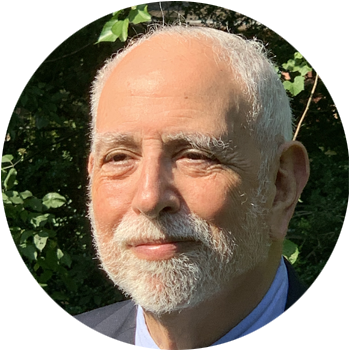1.5 Hours | 1.5 CEs
This on-demand professional training program on Stigma in the Law & Impact on the Forensic Mental Health Evaluation is presented by Michael Perlin, JD, and Heather Ellis Cucolo, JD, in partnership with the Mental Disability Law and Policy Associates (MDLPA)
Stigma is best referred to as an aspect of “sanism.” Sanism is an “irrational prejudice of the same quality and character as other irrational prejudices that cause, and are reflected in, prevailing social attitudes such as racism, sexism, homophobia, and ethnic bigotry.”
It reflects discrimination on the basis of one's mental state or condition and is a pervasive stigma that befalls persons with mental disabilities that permeates the legal process. It affects all participants in the mental disability law system, including litigants, fact finders, counsel, and expert and lay witnesses, and its corrosive effects have warped all aspects of mental disability law, involuntary civil commitment law, anti-discrimination law, institutional law, tort law, and all aspects of the criminal process.
Especially key here is the relationship between stigma/sanism and trauma in the context of the forensic mental health evaluation. The best remedy for rooting out stigma in the law (in the context of sanism) is a turn to therapeutic jurisprudence (TJ), a school of thought that therapeutic recognizes that, as a therapeutic agent, the law can have therapeutic or anti-therapeutic consequences, and asks whether legal rules, procedures, and lawyer roles can or should be reshaped to enhance their therapeutic potential while not subordinating due process principles Central to TJ are commitments to compassion and dignity, a focus on the quality and effectiveness of counsel, and, for the purposes of this program, a special focus on interactions between expert witnesses and those subject to court procedures.
This program covers:
- The meaning of sanism
- Sanism’s pernicious impact on the legal process
- How judges and lawyers regularly ignore this impact
- The specific relevant issues raised in the forensic mental health evaluation process
- How the conscious employment of therapeutic jurisprudence principles is the best palliative for the problems at hand

Intended Audience
This on-demand professional training program is intended for mental health and other allied professionals

Experience Level
This on-demand professional training program is appropriate for beginner, intermediate, and advanced level clinicians.

CE / CPD Credit
APA, ASWB, CPA, NBCC Click here for state and other regional board approvals.
Learning Objectives
Upon completion of this program you will be able to:

Describe how stigma permeates all aspects of the entire forensic mental health process

Describe the meaning of “sanism” and how it must be counteracted at every stage of the process, including its relationship to the trauma of the forensic mental health evaluation process

Describe how the adoption of therapeutic jurisprudence principles is the best tool to root out the prejudices of sanism and help eliminate stigma

Curriculum
1. Introduction
2. Sanism
3. Trauma-Informed Mental Health Evaluations
4. A Conscious Employment of Therapeutic Jurisprudence Principles
5. Question and Discussion
Develop a Specialty Area of Practice
Transforming mental health professionals into experts
Expert Instructors
Professional training developed and delivered by the field's leading experts

CE Credit
Earn CE credit for meaningful professional training that will elevate your practice
Convenience & Flexibility
Learn at your own pace, from wherever you might be!
Program Partner
Mental Disability Law and Policy Associates
We are proud to partner with Mental Disability Law and Policy Associates, LLC for this training. MDLPA is a boutique educational training company that offers specialized mental disability law consulting, the creation or enhancement of distance learning programs, in-house or online courses, and day or weekend training seminars to reputable organizations, educational institutions, professional groups, and advocacy groups focused on providing advanced knowledge and skills to persons working with marginalized populations.




